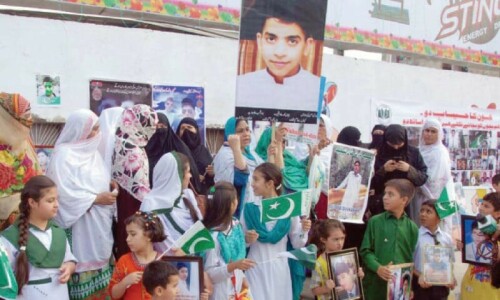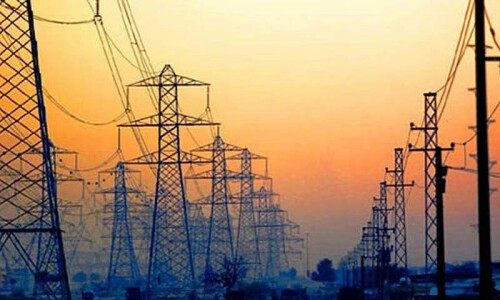 WASHINGTON, Feb 27: Eat an orange. Wear a face mask. Train elsewhere and fly in at the last possible moment to compete.
WASHINGTON, Feb 27: Eat an orange. Wear a face mask. Train elsewhere and fly in at the last possible moment to compete.
These are some of the strategies suggested for Olympic athletes planning to compete in Beijing, where a thick cloud of smog often blankets one of the world’s most-polluted cities.
“There really isn’t anything specific you can do to acclimate to substandard air quality,” said Darryl Seibel of the US Olympic Committee. “From a training point of view, there’s nothing we’ve found that an athlete can do without risking their health and well-being.” The US teams expect Beijing’s air to reach a “safe and suitable standard for elite competition,” Seibel said in a telephone interview from Colorado Springs, Colorado, home of the US Olympic Training Centre.
He did not think athletes would need to wear activated carbon filtration masks, as US coaches advised in a newsletter article in 2006, and as US triathletes did on a visit to China last year.
But he did not rule anything out. “Until we arrive at the games in August, there’s no way to predict what the air quality will be.” It is likely to be hot and humid. The average August temperature in Beijing is 85.1F (29C), with relative humidity of 69 per cent. This puts Beijing’s heat index in the “caution” range, US sports officials have said.
But August is also likely to be rainy, and that could cut down on sooty particles in the air.
Beijing has poured 120 billion yuan ($16.8 billion) into clearing the smog, for a Games many of its leaders see as a coming-out party to mark China’s rise as a major world power.
“The air quality is much better now,” said Gao, a 77-year-old Beijing resident. “When I came to Beijing 50 years ago, I could not even open my eyes when walking on those dirt roads in the coal-burning neighbourhood,” she said.
Officials reportedly plan to keep half of Beijing’s three million cars off the roads during the Games, which begin August 8. Authorities have also ordered Beijing and five surrounding provinces to cut industrial pollution for two months from late July.
International Olympic Committee president Jacques Rogge has warned that some endurance events — where athletes will be exposed to the air for long periods — could be rescheduled if air pollution presents a danger.
But he has also said environmental challenges are not new to the Games, citing the heat in Athens in 2004, and air pollution in Seoul in 1988 and Los Angeles in 1984. All three cities tackled the problems before the Games, building trams, shutting factories or asking drivers to stay off the roads.
Nonetheless this year, at least seven countries plan to sendsome of their Olympic athletes to Japan just before the Games begin, drawn by international-standard sports facilities and accommodation and healthy food, as well as cleaner air and a mere one-hour time difference between Japan and China.
Germany, Greece, the United States, France, Britain, Sweden and the Netherlands are among those training in Japan.
Italy’s Stefano Baldini, the 2004 Olympic marathon gold medallist, said Beijing’s smog would be a problem. “Having to breathe in pollution while running is bound to affect performances,” Baldini said in a telephone interview in January. “But I hope the situation will improve between now and August.”
German-born Josefa Idem, who won the gold medal for Italy in the 500 meter individual kayak event at the 2000 Sydney summer Games, will be competing in her seventh Olympics in Beijing.
Her event will be held some 37 miles (60 km) from Beijing. “I’m very sorry for the Chinese people who have to live in unhealthy environmental conditions,” Idem said. “If it has an effect on the sporting field, it will be the same for all of the athletes.” This pragmatic view is echoed by some Beijing residents.
“We cannot attribute all the reasons to air pollution if those foreign athletes don’t perform well. It doesn’t matter if they have the strength to win,” said Zhang, 39, who has worked as a street sweeper in Beijing for 23 years.—Reuters













































Dear visitor, the comments section is undergoing an overhaul and will return soon.